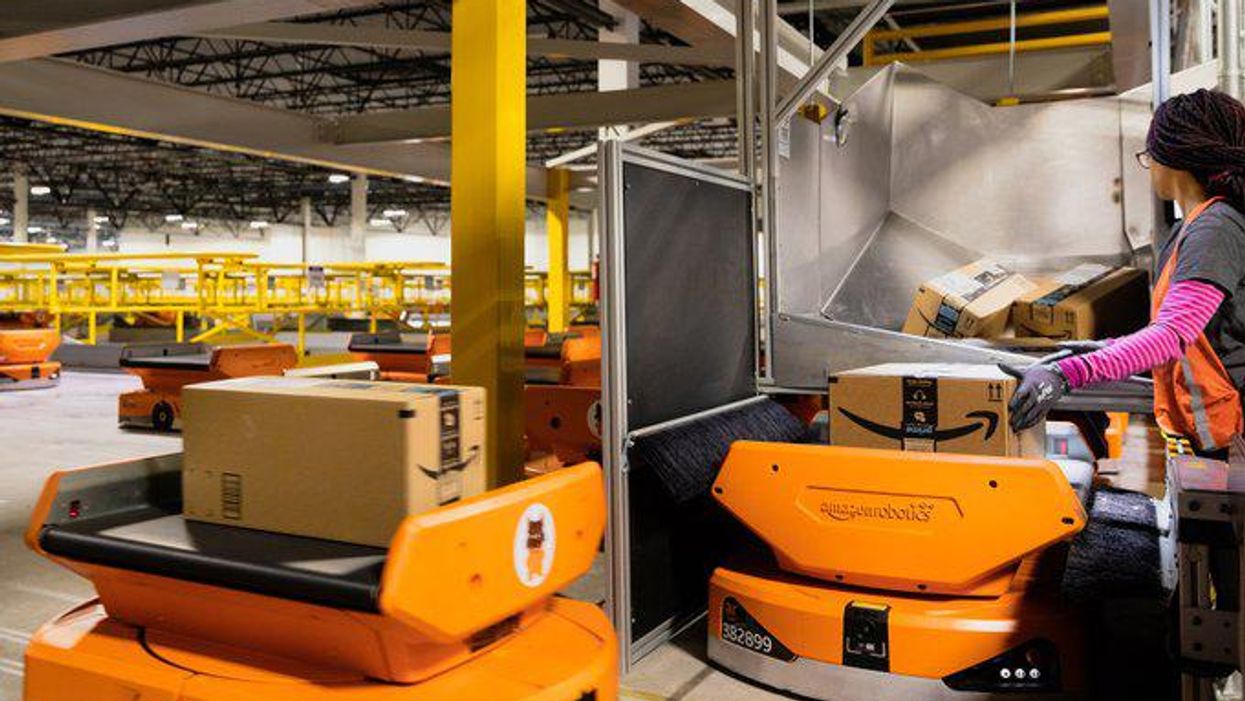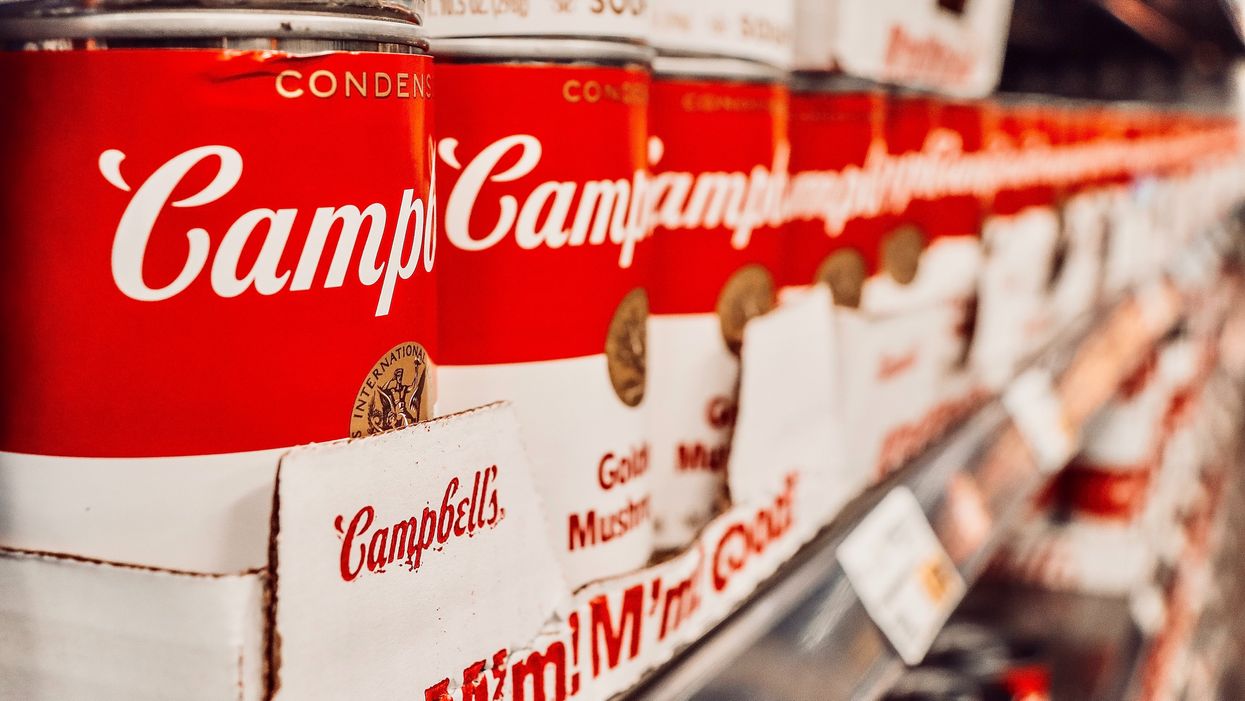Welcome to Dealboard. In this weekly feature, The Current is providing a look at the mergers, acquisitions and venture capital deals making waves in the ecommerce and consumer goods landscape.
This week, a millennial DTC brand makes a GenZ-focused acquisition, startups are receiving investment for personalization and Amazon is funding the development of new warehouse robots.
Here’s the full rundown:
MERGERS AND ACQUISITIONS
ThirdLove acquires Kit Undergarments
ThirdLove is making its first acquisition.
The DTC brand said Monday it will acquire Kit Undergarments, the New York-based intimates brand founded in 2019 by celebrity stylists Jamie Mizrahi and Simone Harouche.
Bringing together a pair of women-founded brands, ThirdLove called the deal a ”major tentpole moment” as it brings on a second brand for future growth.
San Francisco-based ThirdLove grew as a favorite of millennials. By adding another brand, it is seeking to make inroads with GenZ.
"We wanted to create a sub-brand that targets a younger demographic,” said Heidi Zak, cofounder and CEO of ThirdLove, in a statement. “Rather than leveraging our team’s time and effort on creating a new brand from scratch, our solution was to find an incredible existing brand we could scale through the backing of ThirdLove.”
Following the deal, Kit Undergarments will relaunch Tuesday, April 26, as Kit Undergarments for ThirdLove.
Helen of Troy acquires Curlsmith
Consumer products company Helen of Troy announced the acquisition Monday of Curlsmith, a brand that makes products for curly and wavy hair.
Valued at $150 million, the deal was formally executed by El Paso, Texas-based Helen of Troy subsidiary Recipe Products Ltd. A news release called the deal a “tuck-in acquisition” that will strengthen Helen of Troy’s beauty category, which also includes brands such as Drybar, Revlon and HOT Tools.
“In Beauty, we will be immediately adding capability through a much larger salesforce in brick and mortar and online, additional DTC capability, marketing, category development, appliance know how, and an international go-to-market footprint,” Helen of Troy CEO Julien R. Mininberg said in a statement. “Once we complete the necessary integration activities, we expect to add further value to the business and achieve meaningful synergies by leveraging Helen of Troy’s highly capable global sourcing, distribution, and back-office shared service capabilities.”
New York-based Curlsmith was launched in 2018, and completed a Series A funding round led by BFG Partners in January 2021. At the time, the company said its products were available in 1,200 Ulta Beauty stores, as well as on its website.
“Helen of Troy has a talent for spotting exceptional indie brands that do things differently, and turbo charging them,” said Michal Berski, Curlsmith Founder and CEO, in a statement. “So, from the get-go we knew that Curlsmith would be a compelling strategic fit. As a market-leading textured haircare brand, Curlsmith both complements and brings a new dimension to their already enviable prestige haircare portfolio.”
Assembly acquires PipeCandy
In the ecommerce software space, platform provider Assembly announced that it will acquire market intelligence platform PipeCandy.
San Francisco-based PipeCandy said it tracks more than 5.4 million ecommerce companies across North America, Latin America, Western Europe, Middle East, India and Australia. That includes 250,000 DTC brands.
"External data provides perspective that companies simply don't have access to internally. Assembly already has the deepest and widest dataset — spanning marketplace, social and affiliate ecommerce performance of merchants," said Ben Collier, Head of Product at Los Angeles-based Assembly, in a statement. "With PipeCandy, we now unlock a 360-degree view of ecommerce performance of brands. PipeCandy has the best data set on DTC ecommerce in the industry and Assembly is now poised to be the authority of omni-channel ecommerce market intelligence."
In recent years, Assembly has also acquired ecommerce platforms Helium 10, Pacvue and Refersion.
Terms were not disclosed.
Mondelez makes a move in Mexico
In a deal between two towering CPG brands in the food space, Mondelēz International is set to acquire the confectionary business Ricolino from Grupo Bimbo for $1.3 billion.
With about $500 million in annual revenue and 6,000 employees, 50-year-old Ricolino is a leading snack brand in Mexico.
By bringing Ricolino’s lollipops, marshmallows, chocolates and gummies into its portfolio, Mondelēz said the deal will double the size of its business in Mexico.
“This acquisition will provide a step change for our business in Mexico, an important growth market for us, more than tripling our routes to market and growing our position in core snacking categories,” said Dirk Van de Put, Chairman and CEO of Mondelēz International, in a statement. “We are thrilled to welcome Ricolino’s talented people and amazing brands into the Mondelēz International family.”
The acquisition is expected to close in late Q3 or early Q4 of 2022.
Simply Better Brands merges with Jones Soda
Simply Better Brands, an omnichannel consumer goods platform, plans to merge with craft beverage company Jones Soda, the companies announced on April 21.
With Simply Better Brands acquiring shares of Jones, the deal is expected to be valued at $98.9 million. On completion of the merger, Simply Better Brands expects to change its name to Jones Soda, according to a news release.
Seattle-based Jones Soda was a turnaround story in recent years, as CPG veteran Mark Murray took the helm as CEO and implemented a strategy centered on ecommerce and tech-forward marketing initiatives such as the introduction of augmented reality labels, Business Insider reported.
By combining Jones with Simply Better Brands’ portfolio, the companies expect growth in three categories: food and beverage, plant-based wellness and CBD/THC products as well as health and beauty.
It’s one of a series of moves in recent years by Vancouver, Canada-based Simply Better Brands to bring on additional brands.
“Our growth model remains consistent: acquire and build emerging Gen Z and Millennial brands in the wellness space through category, channel and geographic expansion,” Kathy Casey, CEO of SBBC, said in a statement. “We see joining forces with Jones as an incredible fit due to a common wellness mission, consumer cohort, and leadership approach. Our previous acquisitions of PureKana, TRUBAR and No BS brands have yielded tremendous opportunities to fuel our growth and we are thrilled to have the opportunity for the iconic Jones brand to join our expanding portfolio.”
Here are a couple more M&A developments we're watching that will be of interest to brands and retailers:
- In the continuing saga of Kohl's future, the owners of its department store rival JC Penney are making an $8.6 billion bid to buy the firm, the New York Post reports.
- Authentic Brands Group, the owner of Reebok, is mulling a bid for the British brand Ted Baker, Sky News reported over the weekend. This comes after the label rejected previous private equity bids last month.
FUNDING
Venture investments in personalization
Shopify made a strategic investment in Crossing Minds, an AI-powered recommendation platform.
With the deal, Crossing Minds is available on the Shopify platform.
“We built the Crossing Minds recommendation platform to help merchants understand their customers better without sacrificing their customers’ privacy,” said Alexandre Robicquet, Crossing Minds cofounder and CEO, in a statement. “We're thrilled to be a part of the Shopify ecosystem of commerce tools that are trusted by millions of businesses worldwide. Our platform integrates seamlessly with Shopify's merchant tools, providing great shopping experiences and precise recommendations.”
The deal comes amid an increasing focus on personalization in ecommerce, especially as privacy rules enacted as part of Apple’s iOS 14 rollout and rising consumer acquisition costs make performance marketing a more challenging growth avenue for the DTC brands that grew with infrastructure provided by Shopify.
“As we aim to make commerce better for everyone, our strategic investment in Crossing Minds will further provide merchants with a unique solution to provide relevant product recommendations and personalized experiences to meet customer's evolving needs," said Fjolla Bakalli, Shopify’s Manager of Corporate Development and Strategic Initiatives, in a statement. "Crossing Minds is leading the future of recommendation and personalization through best-in-class AI that will ultimately enable Shopify merchants to build stronger relationships with their customers."
It comes during a busy time for deals at Shopify. The Ottawa-based company acquired Dovetale to add creator-focused tools that help brands manage influencer marketing campaigns earlier this month. It is also said to be in talks to acquire fulfillment platform Deliverr, according to reporting from Bloomberg last week.
Elsewhere in the AI-powered personalization space, Jarvis ML raised $16 million, according to Techcrunch.
Founded by former Google engineer Rakesh Yadav to bring machine learning capabilities to businesses regardless of their tech capabilities, the Cupertino, California-based company has focused initially in ecommerce, in particular zeroing in on personalizing customer experiences.
The company said the funding was led by Dell Technologies Capital, with additional participation by SHAKTI and more than a dozen veteran Silicon Valley technologists and business leaders.
In a separate deal that brings a specific focus on skincare, Revea raised $6 million in seed II funding led by Alpha Edison and supported by Ulta Beauty. According to Morning Brew, the San Francisco-based company combines imaging, AI and consultations to develop personalized skincare regimens for individuals. With the new funding, it is looking to develop a mobile app.
Johnnie-O raises $108M
Mens apparel brand johnnie-O said Monday it closed on a new investment of $108 million from Wasatch Global Investors (“Wasatch”) and Ares Management Corporation (“Ares”) funds.
The Santa Monica, California-based brand makes apparel, footwear and accessories for men and boys that includes polos, button-downs, swimwear and activewear. It is looking to keep expanding after sales and EBITDA grew more than 80% in 2021. This was fueled by an ecommerce channel that "contributed significantly," the company said in a news release, alongside wholesale and retail stores.
With the investment, Wasatch and Ares will together hold a minority stake in the brand.
“We are excited to provide flexible capital in support of johnnie-O’s strong growth plans," Brian Goldman, Partner at Ares, said in a statement. "This investment dovetails with Ares’ strategy of investing alongside companies with strong brands, compelling track records and best in class management teams.”
Amazon's billion-dollar fulfillment fund
There was no shortage of Amazon news for ecommerce merchants last week, as the company announced its new Buy With Prime program and inventory-related changes in the Fulfillment by Amazon program.
In a move that looked toward the future, the company also announced a new investment fund to support startups developing technology in the area of fulfillment, supply chain and logistics innovation. The Amazon Industrial Innovation Fund is focused on backing technologies that increase delivery speed and improve worker experience.
“We know there are companies out there that share our curiosity and excitement to invent. Whether our investment helps them grow or leads them to work with Amazon, or both, we’re excited to help advance these technologies as online shopping becomes even more important to people who are looking for more convenience and time savings," said Alex Ceballos Encarnacion, Amazon’s VP of worldwide corporate development, in a statement.
With the first round of investments, it is backing wearable technology. Here’s a look at the companies that received backing:
- Modjoul, a Greenville, South Carolina-based company developing wearable safety technology aimed at reducing injuries.
- Vimaan, a Santa Clara, California-based company focused on improving inventory management.
- Agility Robotics, a Corvallis, Oregon-based company developing a bi-pedal walking robot, called Digit, which addresses the mobility limitations of traditional robots.
- BionicHIVE, an Israel-based company developing an autonomous robotic solution for shelving racks and warehouse boxes.
- Mantis Robotics, a San Francisco-based company developing a robotic arm to work alongside people.












